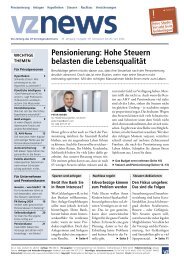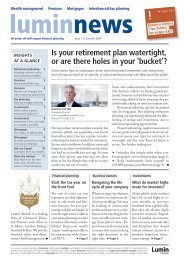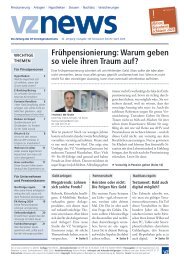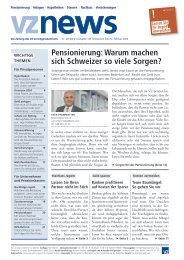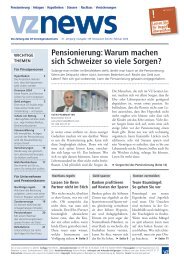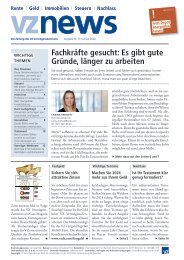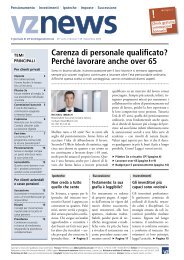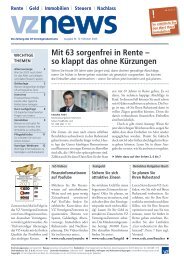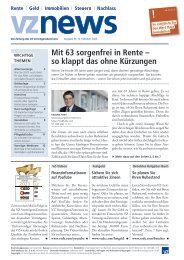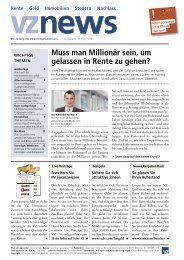lumin news Issue 10 / Winter 2024
Create successful ePaper yourself
Turn your PDF publications into a flip-book with our unique Google optimized e-Paper software.
<strong>lumin</strong> <strong>news</strong> <strong>10</strong> / winter <strong>2024</strong> Page 7<br />
Family investment companies: A tax-efficient<br />
way of building and protecting wealth<br />
For families with substantial wealth a family investment company may prove to be a<br />
valuable alternative to approaches such as a discretionary trust.<br />
A family investment company,<br />
or FIC, can offer a flexible<br />
and tax-efficient solution<br />
through which to grow and<br />
pass on wealth.<br />
A FIC is structured as a<br />
private limited company and<br />
created (often via a founder<br />
‘loan’) to hold a wide range<br />
of investments for a family,<br />
with the possibility of establishing<br />
different share classes<br />
to vary control and income<br />
opportunities. A gift of shares<br />
to children is outside the donor’s<br />
estate after seven years.<br />
In contrast, when gifting into<br />
a discretionary trust a 20%<br />
tax charge is due immediately<br />
if the gift exceeds £325,000.<br />
This rule, alongside additional<br />
tax charges that apply<br />
to discretionary trusts every<br />
<strong>10</strong> years, means that certain<br />
high-net-worth families use<br />
FICs as an alternative option<br />
to consolidate and protect<br />
family wealth, while maintaining<br />
control and providing<br />
an income (if required).<br />
Potential tax benefits<br />
Repayment of the original<br />
‘loan’ is tax-free and can be<br />
used to provide an income.<br />
Dividends declared on underlying<br />
equities held in<br />
a FIC are typically exempt<br />
from corporation tax. If held<br />
by an individual, or in trust,<br />
dividends (above the tax-free<br />
allowance) are subject to tax<br />
at 33.75% for higher rate taxpayers,<br />
or 39.35% for additional<br />
rate taxpayers. If a FIC<br />
is properly structured inheritance<br />
tax can be negated entirely,<br />
providing that the donor<br />
survives for seven years<br />
after they gift shares to their<br />
children. The cost of running<br />
the FIC is also tax deductible.<br />
Possible drawbacks<br />
Profits from the sale of investments<br />
held in a FIC are<br />
subject to corporation tax at<br />
a rate of 25% (not the lower<br />
‘small profits rate’). This is<br />
higher than the current capital<br />
gains tax rate on shares,<br />
which is 20% (although gains<br />
on investment properties are<br />
taxed at 28%). The biggest<br />
watchpoint revolves around<br />
extracting funds from the<br />
company. A distribution to a<br />
shareholder is subject to income<br />
tax. That tax liability<br />
can be managed by making<br />
more regular or smaller distributions<br />
to individuals who<br />
have limited other income<br />
(eg. children).<br />
FICs can be complicated<br />
and will not be<br />
the right solution for everyone.<br />
You should seek advice<br />
from a qualified professional<br />
to establish the best approach<br />
for your own circumstances.<br />
Please call 03300 564 446<br />
to discuss your options.<br />
Achieve your investment goals (earlier) by selecting<br />
the right funds<br />
It’s vital to invest in strong-performing<br />
funds that provide<br />
value for money. But there are<br />
over <strong>10</strong>0,000 collective investment<br />
vehicles worldwide<br />
and about 4,000 funds for sale<br />
in the UK. As a private investor,<br />
researching and selecting<br />
these funds can be difficult.<br />
A typical fund selection process<br />
Investment funds<br />
Initial screening<br />
Quantitative scoring<br />
Qualitative analysis<br />
Portfolio use/monitoring<br />
Unbiased selection<br />
The cornerstone of an unbiased<br />
approach is to choose<br />
from all available funds and<br />
not restrict yourself to certain<br />
providers or product types.<br />
Best-in-class products can<br />
either be active funds or passive<br />
vehicles. Active funds<br />
may struggle to outperform<br />
passive alternatives – which<br />
have lower fees – in some<br />
markets, but can have better<br />
chances in other sectors.<br />
Choosing the right<br />
investment funds<br />
A fund selection process usually<br />
starts with initial screening<br />
(eg. minimum fund size),<br />
before analysing historical<br />
performance over different<br />
time periods and market<br />
conditions (eg. when equity<br />
markets have gone up or<br />
down). A qualitative assessment<br />
is the most critical step<br />
to establish the likelihood of<br />
strong performance being<br />
repeated going forward. Due<br />
diligence thoroughly investigates<br />
a fund’s strategy, processes,<br />
and team. Ongoing<br />
monitoring after the selection<br />
of a fund typically incorporates<br />
measures such as<br />
monthly and quarterly performance<br />
analysis, and scrutiny<br />
of any changes to the<br />
investment process, strategy,<br />
or fund management team.<br />
Professional expertise<br />
can provide value for<br />
money and help avoid some<br />
of the potentially costly traps<br />
that private investors can fall<br />
into. Find out more by calling<br />
03300 564 446.






